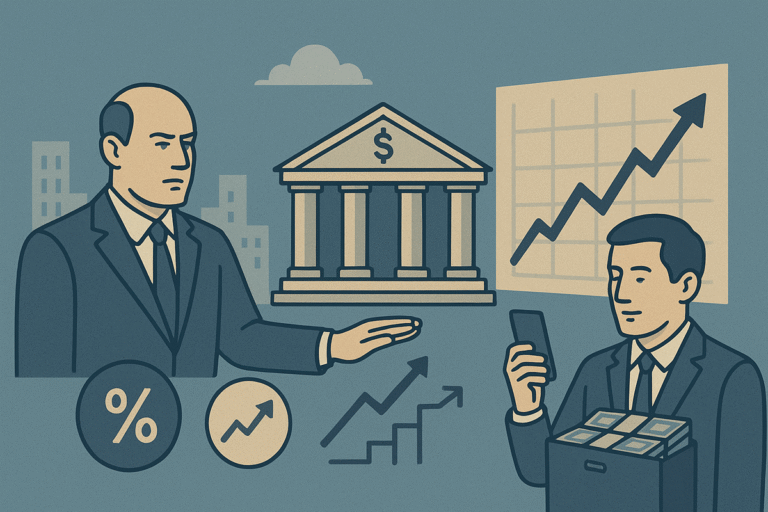In the landscape of modern technology, Artificial Intelligence (AI) and Blockchain are among the most transformative innovations. While each is powerful on its own, their fusion promises a new frontier: Decentralized Intelligence.
This concept transcends traditional boundaries—allowing machines to learn, act, and evolve without relying on centralized control. Imagine AI models trained on secure, decentralized data, accessible to all, yet controlled by none. This is not a distant dream; it’s an emerging reality.
What Is Decentralized Intelligence?
Decentralized Intelligence refers to AI systems that are distributed and autonomous, operating on networks that are powered by blockchain technology. It’s a model where decision-making, data exchange, and system learning happen transparently, securely, and without a central authority.
At its core, this fusion is about trust and autonomy:
Blockchain provides a secure, immutable ledger for data, transactions, and ownership.
AI brings intelligence, prediction, automation, and adaptive learning.
When combined, they unlock possibilities that centralized systems can’t achieve.
The Problems Centralized AI Faces
Before we understand why decentralization matters, let’s examine the limitations of centralized AI systems:
1. Data Silos and Control
Big Tech companies control vast amounts of data, and AI models are trained within closed ecosystems. This leads to biased systems, inaccessible innovation, and privacy risks.
2. Lack of Transparency
AI decisions—especially in areas like healthcare, finance, and legal systems—can be opaque. Users often don’t understand how conclusions were reached.
3. Security and Manipulation Risks
Centralized data storage is a prime target for cyberattacks. Data breaches compromise privacy and can influence AI learning with manipulated inputs.
4. High Barrier to Entry
Training large AI models requires immense computing resources, excluding smaller organizations or communities from participating.
How Blockchain Solves These Challenges
Blockchain technology introduces the tools needed to decentralize AI:
Transparent Data Trails
Every data entry and AI decision can be recorded immutably on the blockchain, making AI operations auditable and accountable.
Data Ownership and Consent
Using blockchain-powered tokens and smart contracts, individuals can own and control their data, granting or revoking AI access as they wish.
Trustless Collaboration
Parties can collaborate and contribute data or models without trusting a central authority. Incentives can be automated via tokenomics.
Decentralized Compute Power
Projects like Golem and Render Network allow users to rent out computing power, reducing costs and democratizing AI training.
Real-World Projects Blending AI + Blockchain
1. SingularityNET (AGIX)
A decentralized marketplace for AI services, where developers can publish and monetize models. It promotes interoperability and autonomous AI agents.
2. Ocean Protocol
This protocol enables secure, privacy-preserving data sharing for AI training. It turns datasets into tokens that can be traded without compromising ownership.
3. Fetch.ai
An AI-powered network of autonomous agents that can handle tasks like transportation, energy grid optimization, and finance—all running on a decentralized infrastructure.
4. Numeraire (Numerai)
A decentralized hedge fund where data scientists around the world build predictive AI models to improve trading strategies, incentivized with blockchain-based tokens.
Use Cases for Decentralized Intelligence
Personalized Healthcare
AI can diagnose and suggest treatments based on medical records. Blockchain ensures that patients retain control over who accesses their sensitive data.
Smart Cities
Decentralized AI agents can manage traffic flows, reduce energy consumption, and improve public services, using blockchain for secure data exchange between devices.
Financial Inclusion
AI-driven credit scoring systems can evaluate users in underbanked regions, using decentralized identity and transaction histories stored on blockchain.
AI-Powered DAOs
Decentralized Autonomous Organizations (DAOs) could be run by AI agents trained on member inputs and community data, improving governance and reducing bias.
Challenges Ahead
While promising, the road to decentralized intelligence isn’t without obstacles:
Scalability: Blockchains must evolve to handle large-scale AI computations efficiently.
Standardization: Integrating AI protocols across different blockchain networks is complex.
Regulatory Hurdles: Balancing innovation with data privacy laws remains tricky.
User Experience: Simplifying interfaces for non-technical users is critical for adoption.
The Future of Decentralized Intelligence
We are only scratching the surface. As quantum computing, edge devices, and zero-knowledge proofs evolve, decentralized intelligence could redefine:
Governance systems
Autonomous robotics
Secure content creation
Human-machine collaboration
This isn’t just about smarter tech—it’s about creating a more democratic, fair, and resilient digital world.
Final Thoughts
The fusion of blockchain and AI is more than a trend; it’s a paradigm shift. By decentralizing intelligence, we move toward a future where technology is transparent, accountable, and truly empowering. From finance to healthcare, governance to education, decentralized AI systems hold the key to the next digital revolution.
As individuals, developers, and innovators, our role is to ensure this future remains open, ethical, and inclusive—because intelligence, when shared wisely, can uplift humanity.





